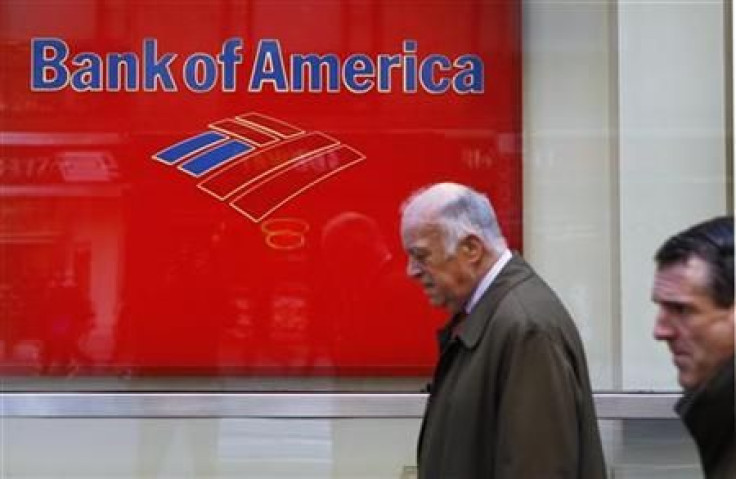Credit Unions Capitalize on Bank Fee Displeasure

With customers angry about new bank fees, credit unions have been trying to use the displeasure to gain more customers.
The National Association of Federal Credit Unions said its website to look up credit unions, CULookup.com, saw a 350 percent increase in traffic in the two weeks after Bank of America announced its plans to assess a $ 5 monthly fee on debit-card use, according to a statement.
Some credit unions have seen mere interest from potential customers turning into new business. Charlotte Metro Credit Union in Charlotte, N.C. (home of Bank of America headquarters), for example, has seen a whopping 263 percent jump in membership and a 373 percent increase in checking accounts this month, Patty Briotta, public relations manager for the National Association of Federal Credit Unions, told the International Business Times
"What members are telling us is that they are pretty upset with the banks right now," Briotta said.
Bank of America said its $5 fee is necessary because of new regulations curtailing the amount of money the bank can charge merchants for each debit card swipe. Atlanta-based SunTrust Bank began charging a $5 monthly fee this summer, but announced Monday it was backing off the decision.
JPMorgan Chase and Wells Fargo tested a $3 debit card fee in select areas, but announced last week that they will not roll out the charge.
Late last week, Bank of America also appeared to have backtracked on their fee. News sources reported that the company would make it easier for customers to circumvent the fee. Among other things, holding Bank of America credit cards, carrying a minimum balance in bank accounts and investing with Merrill Lynch would allow people to circumvent the rules. A Bank of America spokesperson couldn't be reached for comment.
Even though banks may be back-tracking on the debit-card fee, the firms are using other methods to collect additional revenue. Most large banks have eliminated free checking accounts without a minimum balance. Other banks have gotten rid of debit rewards programs and also charge customers to receive paper statements or make a transaction with a teller.
Unlike banks, credit unions are non-profit institutions owned by their customers, which means that fees and rates are generally more favorable to customers than banks. The money raised by the credit union goes back to the customers in the form of lower rates and reduced fees.
Most people are eligible for a credit union in their area, Briotta notes. Eligibility to join a particular credit union is based on factors such as a person's employer, where a person lives or even a person's religious affiliation.
Credit Unions have been helped by a Facebook event called "Bank Transfer Day." On Saturday, the group is calling on people to move their assets from a bank to a credit union.
"Together we can ensure that these banking institutions will always remember the 5th of November," a statement on the group's Facebook wall read, "If we shift our funds from the for-profit banking institutions in favor of not-for-profit credit unions before this date, we will send a clear message that conscious consumers won't support companies with unethical business practices."
By late Monday afternoon, the group had over approximately 69,000 people "attending."
Some credit unions have capitalized on bank fees in order to garner more customers.
"Tired of ridiculous fees at your bank? Make the hassle-free switch and become a credit union member today," United Teletech Financial, a federal credit union with several locations throughout New Jersey, advertized on their website.
Leo Ardine, CEO of United Teletech Financial, told IBTimes that recent fees, along with the Facebook campaign, has led to interest in people switching over to credit unions.
"We have seen a modest amount of interest [in our credit] union from the general public," Ardine said.
Although Ardine expects new customers, he has seen more growth from people who utilized both a bank and his credit union who have decided to move their finances strictly to the credit union.
"There is a pro-consumer approach for credit unions, but there is more of a pro-stockholder approach at banks," Ardine said.
Destinations Credit Union in Boston also emphasized on their website that they don't charge debit card fees. Carol Szaroleta, director of marketing for Destinations, said the credit union has seen a modest increase in customers recently.
"It's been pretty busy here," Szaroleta told IBTimes, noting that some new customers have expressed their displeasure with new banking fees.
Briotta said that unlike banks, credit unions would treat customers as members rather than as profit-making opportunities.
"Consumers are sending a message that they want to be treated like people," she said. "They are voting with their money."
Write to Samuel Weigley at s.weigley@ibtimes.com.
© Copyright IBTimes 2024. All rights reserved.











